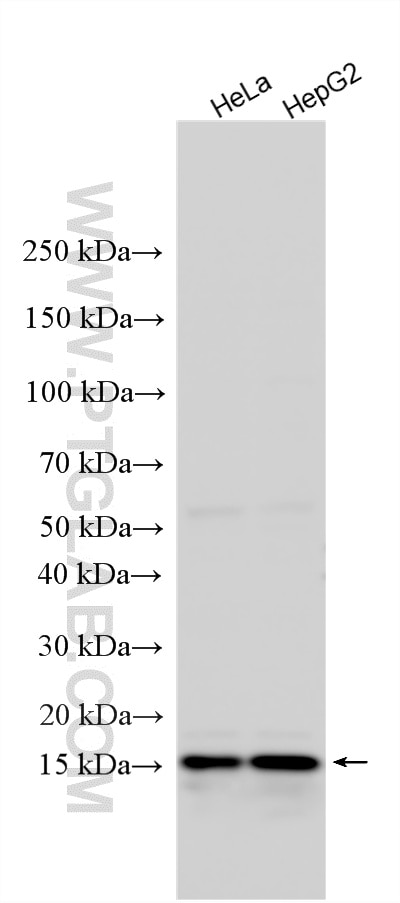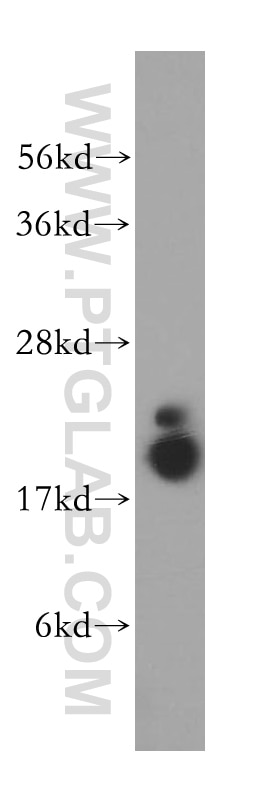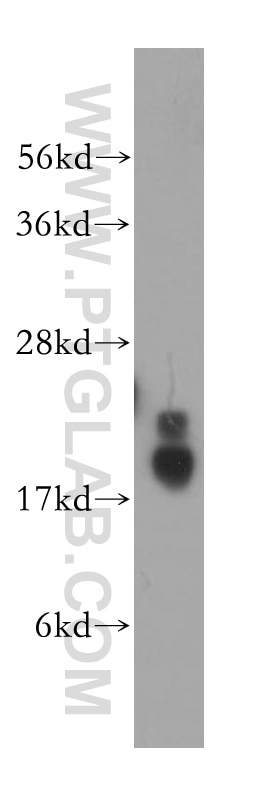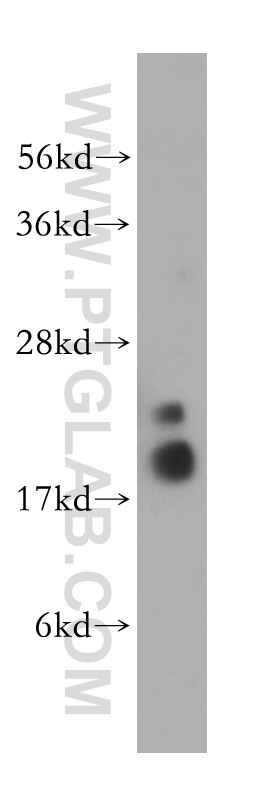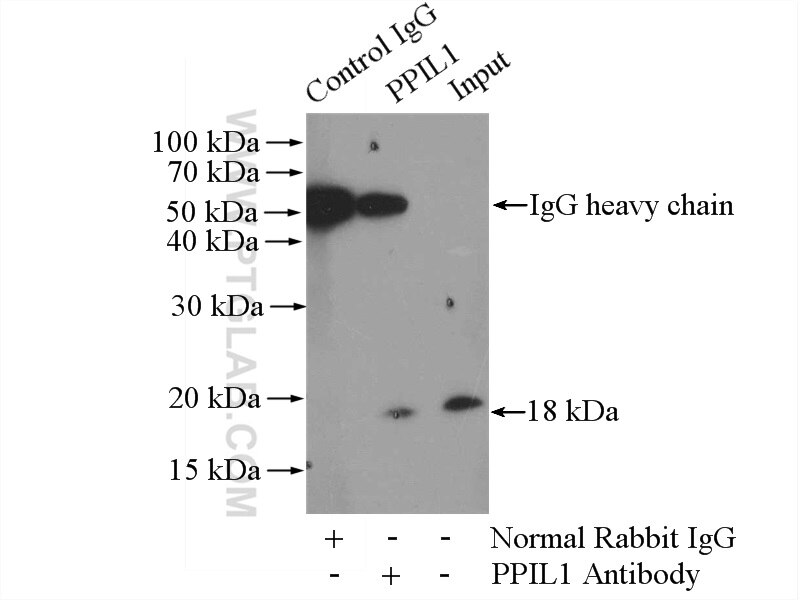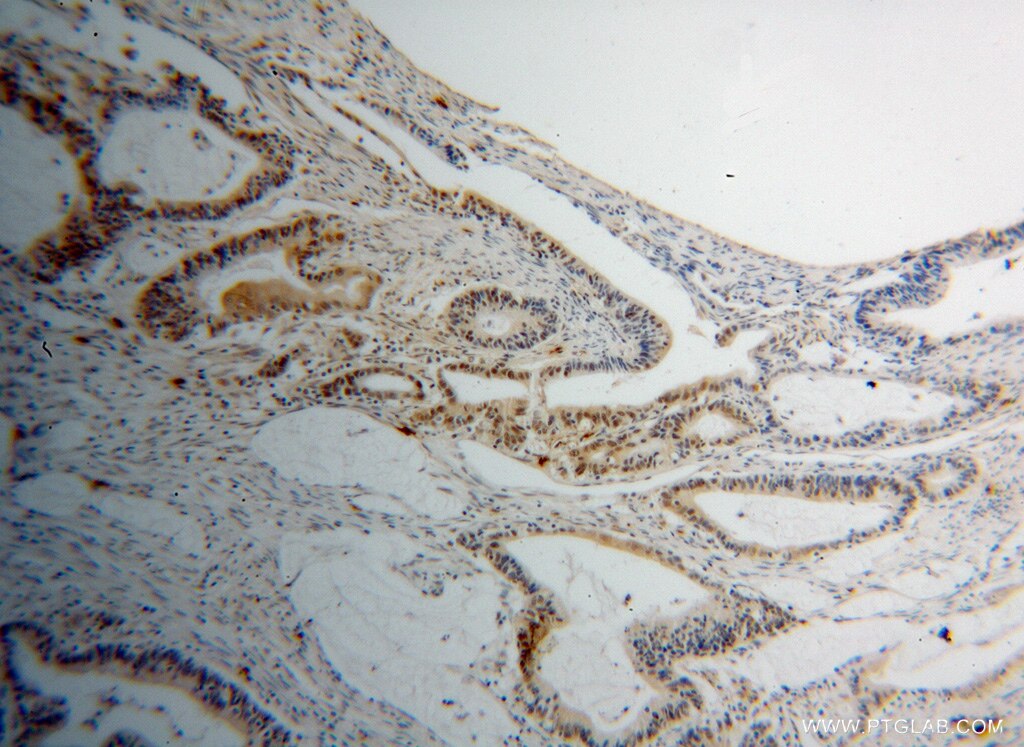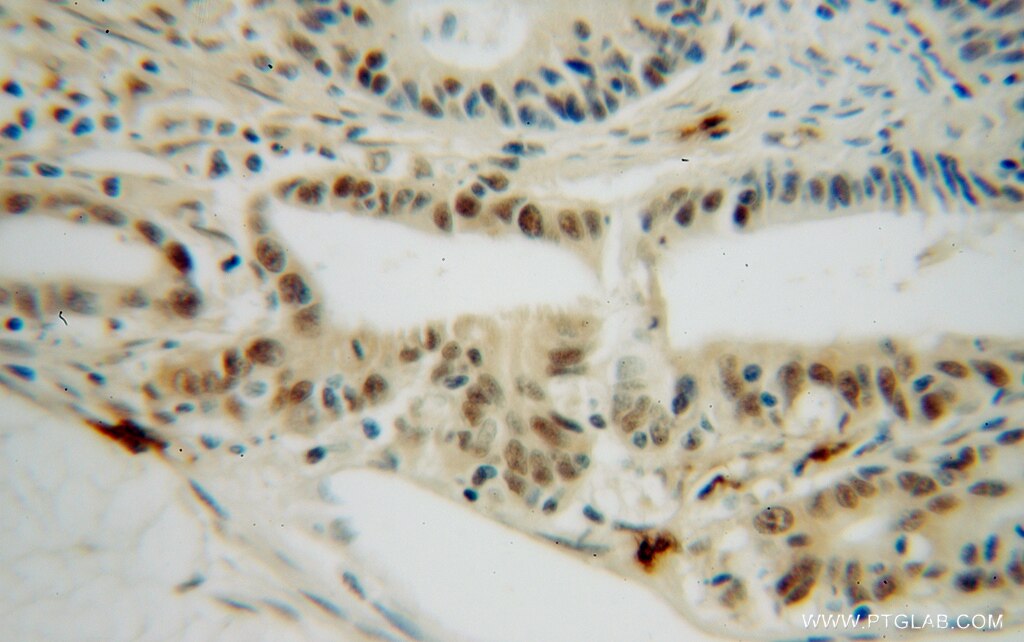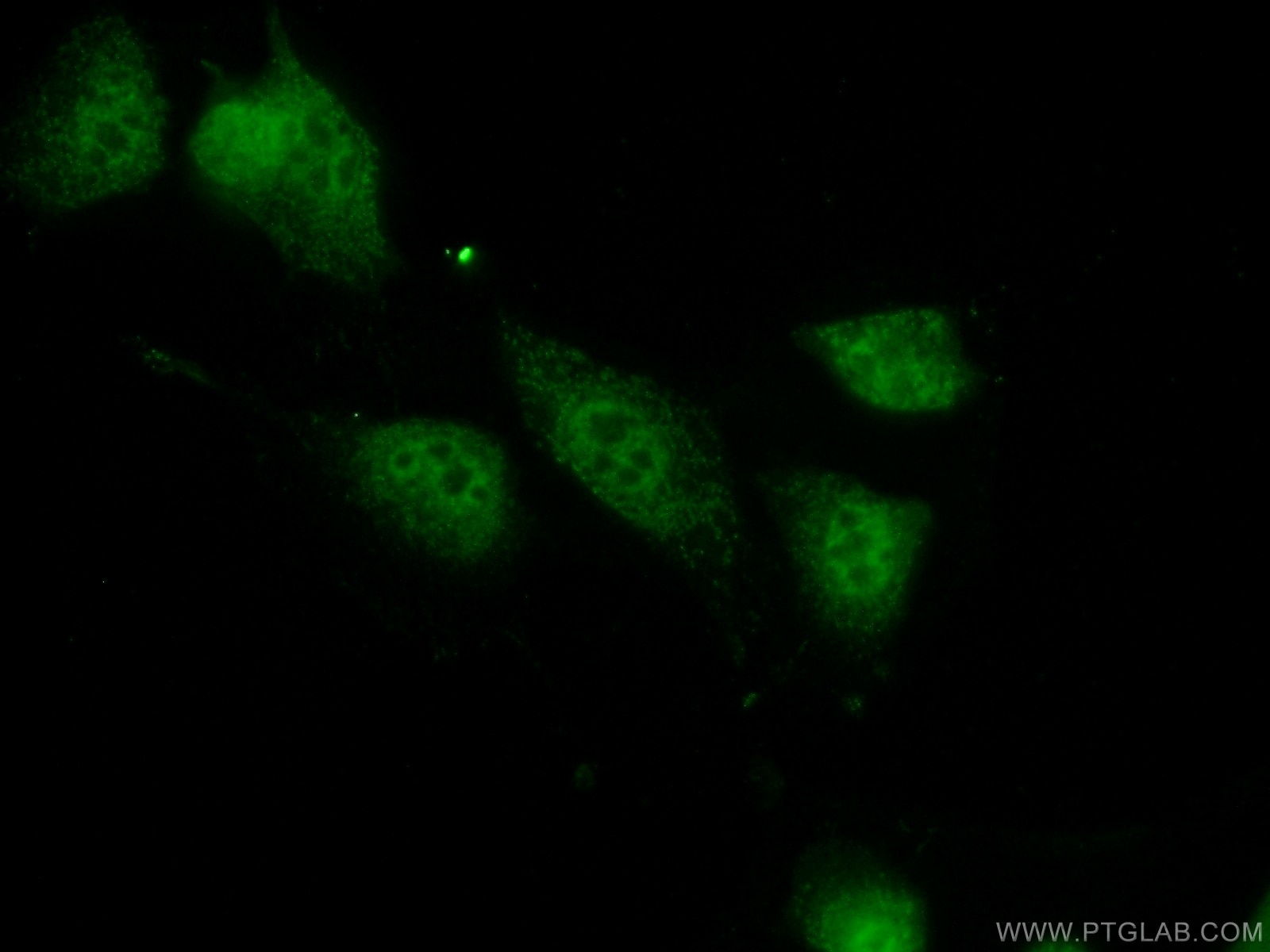Validation Data Gallery
Tested Applications
| Positive WB detected in | HeLa cells, A375 cells, NIH/3T3 cells, HepG2 cells |
| Positive IP detected in | NIH/3T3 cells |
| Positive IHC detected in | human colon cancer tissue Note: suggested antigen retrieval with TE buffer pH 9.0; (*) Alternatively, antigen retrieval may be performed with citrate buffer pH 6.0 |
| Positive IF/ICC detected in | NIH/3T3 cells |
Recommended dilution
| Application | Dilution |
|---|---|
| Western Blot (WB) | WB : 1:1000-1:4000 |
| Immunoprecipitation (IP) | IP : 0.5-4.0 ug for 1.0-3.0 mg of total protein lysate |
| Immunohistochemistry (IHC) | IHC : 1:20-1:200 |
| Immunofluorescence (IF)/ICC | IF/ICC : 1:50-1:500 |
| It is recommended that this reagent should be titrated in each testing system to obtain optimal results. | |
| Sample-dependent, Check data in validation data gallery. | |
Published Applications
| IP | See 1 publications below |
Product Information
15144-1-AP targets PPIL1 in WB, IHC, IF/ICC, IP, ELISA applications and shows reactivity with human, mouse, rat samples.
| Tested Reactivity | human, mouse, rat |
| Cited Reactivity | human |
| Host / Isotype | Rabbit / IgG |
| Class | Polyclonal |
| Type | Antibody |
| Immunogen |
CatNo: Ag7436 Product name: Recombinant human PPIL1 protein Source: e coli.-derived, PGEX-4T Tag: GST Domain: 1-166 aa of BC003048 Sequence: MAAIPPDSWQPPNVYLETSMGIIVLELYWKHAPKTCKNFAELARRGYYNGTKFHRIIKDFMIQGGDPTGTGRGGASIYGKQFEDELHPDLKFTGAGILAMANAGPDTNGSQFFVTLAPTQWLDGKHTIFGRVCQGIGMVNRVGMVETNSQDRPVDDVKIIKAYPSG 相同性解析による交差性が予測される生物種 |
| Full Name | peptidylprolyl isomerase (cyclophilin)-like 1 |
| Calculated molecular weight | 18 kDa |
| Observed molecular weight | 18 kDa |
| GenBank accession number | BC003048 |
| Gene Symbol | PPIL1 |
| Gene ID (NCBI) | 51645 |
| RRID | AB_2169603 |
| Conjugate | Unconjugated |
| Form | |
| Form | Liquid |
| Purification Method | Antigen affinity purification |
| UNIPROT ID | Q9Y3C6 |
| Storage Buffer | PBS with 0.02% sodium azide and 50% glycerol{{ptg:BufferTemp}}7.3 |
| Storage Conditions | Store at -20°C. Stable for one year after shipment. Aliquoting is unnecessary for -20oC storage. |
Background Information
Peptidyl-prolyl isomerase (PPIase) catalyzes the interconversion of a specific Pro-imide bond between the cis and trans conformations. PPIL1 (Peptidyl-prolyl cis-trans isomerase-like 1) is up-regulated in human colon cancer cells and an siRNA-mediated knockdown of PPIL1 resulted in a reduced number of viable cell (PMID: 20368803). Expression of PPIL1 was shown to be ubiquitous across all adult tissues (with highest expression in the adrenal gland, testis and heart). PPIL1 is also known to participate in the spliceosome; a complex and dynamic protein and RNA complex responsible for splicing introns from pre-mRNA (PMID: 33220177, 8978786).
Protocols
| Product Specific Protocols | |
|---|---|
| IF protocol for PPIL1 antibody 15144-1-AP | Download protocol |
| IHC protocol for PPIL1 antibody 15144-1-AP | Download protocol |
| IP protocol for PPIL1 antibody 15144-1-AP | Download protocol |
| WB protocol for PPIL1 antibody 15144-1-AP | Download protocol |
| Standard Protocols | |
|---|---|
| Click here to view our Standard Protocols |

